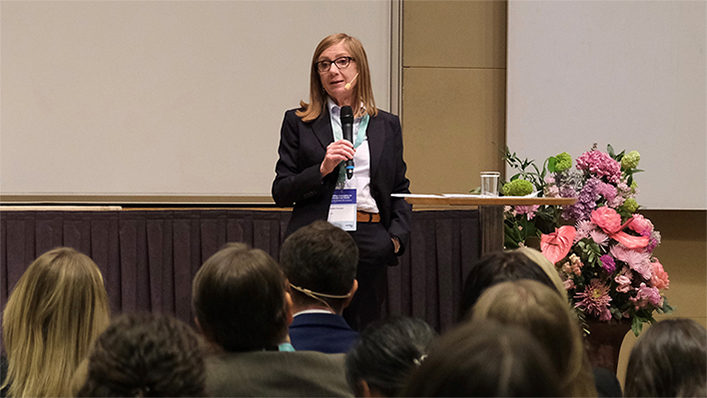
International trade is a central pillar of global prosperity and a contributor to addressing global challenges, DDG González told the conference. In an age awash in information, a rigorous approach to developing and testing ideas is more important than ever. It is only by understanding the ideas, theories and even myths shaping our world that we can harness the right ones and reject the wrong ones.
“Without the facts, without rigorous analysis, above all without discussing, debating and testing ideas, the world is flying blind,” DDG González said.
At the conference, DDG González made three key points.
First, rigorous thinking is especially important in times of crises since crises are often catalysts for profound change. The dramatic changes in the trade policy landscape witnessed over the past few years are no exception. Data, research and analysis are needed to inform the way forward and avoid decisions that, though well-intentioned, leave the world worse off.
Second, the research community can and must do more to shape the narrative of trade and economic integration, especially with respect to the potential for trade to address the big challenges of the 21st century, from tackling climate change to strengthening preparedness for future pandemics and from bolstering socio-economic inclusion to promoting peace and security.
And third, economists need to think and act more like “plumbers”, to borrow from the Nobel laureate Esther Duflo. Those in the policymaking community need to get their hands dirty with the details and messiness of policymaking so that they can play a greater role in influencing policy outcomes.
While in Stockholm, DDG González also participated in a roundtable discussion organized by the International Chamber of Commerce Sweden and the Trade Experettes on the future of the WTO. In exchanging views with the business community, she highlighted the potential of international trade and the WTO to promote sustainability by creating open and predictable markets in clean technology, promoting greater coherence across climate standards and regulations, and supporting the transition from a linear to a circular economy.
Share
Reach us to explore global export and import deals